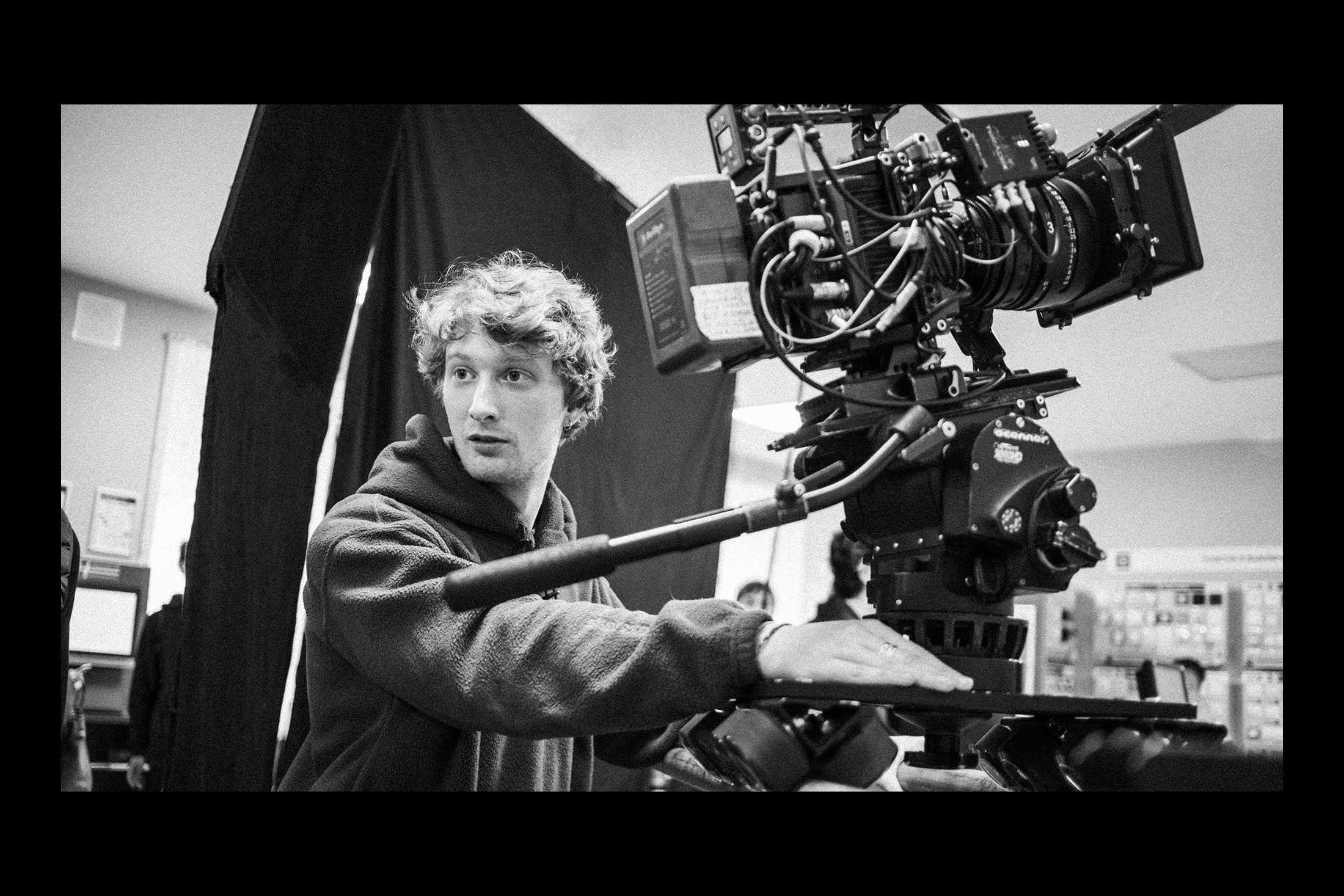Modern man and talented cinematographer – Nikita Karmen
About a year ago the filming of the series “The Violin Bow” ended in St. Petersburg. The show tells the story of the twists and turns in the life of a young man who came from the province to become a violinist, but due to circumstances got involved in the drug business. The series, released in February 2022, immediately became one of the most popular on all streaming services, intriguing viewers with the story of a handsome young man, played by a handsome aspiring actor Mark Eidelstein, who immediately attracted the audience“s sympathy. It is after his starring role in “The Violin Bow” that Mark became widely known, and began to receive more and more movie roles. But this article focuses on a person whose contribution to the show is definitely of equal value, even if it”s less apparent.

In general, it“s not unusual that one has to make a special footnote concerning some kind of invisibility when it comes to camera operators — actually the people whose decisions determine what kind of image the viewer is going to see on the screen. But our today”s hero, Nikita Karmen, certainly is not the person who would pay attention to such trivialities as the undeservedly invisible position of cameramen in the industry.
Well, the point is that Nikita is a hereditary cinematographer who grew up in a family that has been involved in filmmaking for at least four generations. Nikita“s great-grandfather was a famous Soviet film director, documentalist, and not only a cameraman, but also a front-line cameraman, due to whom we have unique footage, including that from the Second World War. Both grandfathers were cameramen, father — a cameraman too, mother — a documentary filmmaker, and it could seem that everything was already predetermined concerning Nikita”s professional path.
However, in his interview with the Russian magazine Snob, Nikita disproves such assumptions, pointing out that having such a family “set,” his parents never urged him to enter the world of cinema, and he not only didn“t spend his entire childhood on a film set, but moreover, he first got there only at university. By the way, as for education, Nikita Karmen graduated from the major film institute of the country — VGIK, and later continued studying, but this time on an international level, enrolling in the master”s degree program for cinematography at Erasmus. Thus, over the two years of studies, relatively young but tirelessly working and self-improving cameraman Karmen managed to work in Dublin, Tallinn, and Budapest, occasionally taking time out of his studies to visit the homeland, from where he continued to receive offers for various film projects.
Working in the film industry, in one way or another, you have to deal with two main ways of professional development: to work on challenging, not always widely popular topics, constantly exploring and reinventing methods and tools, or to produce a mass product, simple and understandable to most people. Of course, in both cases, one has to know how to work in different genres, conditions… but if a person, whose activity inclines toward art and complexity in terms messages, manages to find a like-minded person on his professional path, and then to work with him/her and form a team of people who understand each other very well, it is a tremendous blessing indeed.
And it was this kind of luck that befell Nikita Karmen, when he met director and actor Alexander Tsoi in 2014. Soon after starting working together, the filmmakers found out how comfortable and harmonious they could work on a film. Over the next eight years of productive collaboration, they also discovered similarities on the level of ideas and issues they both believe are important to address when creating a film. By now, Carmen and Tsoi have produced many short films, one full-length film, and two series, the first of which was “The Violin Bow”.
We find it interesting to look at Nikita’s work through the case of the series “The Violin Bow” which we talked about at the beginning of this article.
1. Space
The series is set in St. Petersburg, one of the most beautiful cities in Russia. The hero’s path lies both through the splendid palaces of St. Petersburg, as well as through the darkest depths of the city. Nikita has managed to create stunning images of two worlds, each beckoning you inside. On the one hand, they differ a lot, but on the other, they are still parts of the same whole. The bright light and airy space of one world stands in opposition to the colorful, contrasting and confined space of the other world. To convey the difference between the two worlds and the way the character perceives himself inside them, Nikita used such a technique as a frame within a frame, creating the effect of the bounded position of the character within the space of the image.
2. Camera work
It is also important to pay special attention to camera movements. The camera doesn“t just capture the characters and show you the picture. It sets a certain rhythm to the narrative and influences the way the story unfolds. With a particular camera movement the narrative can increase dynamics, slow down the pace or, on the contrary, if the camera suddenly “stops”, it can draw the viewer”s attention to some important details.
3. Location
Nikita, as the main member of the team responsible for this aspect, was extremely serious when it came to choosing locations for filming. A large number of working days were spent on the process of finding locations, when the team traveled around the city, selecting the streets, courtyards, palaces, and natural landscapes that would contribute to the most impressive plot development, while still remaining realistic and truthful.
But most importantly, the camerawork doesn“t draw all of the viewer”s attention to itself. It remains in balance with the directing, the actors, and the music, allowing the film to achieve its main goal: to tell the story.
Being by nature a gentle and calm man, Nikita Karmen cameraman is distinguished by such valuable in the film industry discipline, seriousness of approach and reliability, which was marked by absolutely everyone who happened to work with him on different projects. As for the creative side of his work, Nikita himself, despite the fact that he is already certainly a valuable professional in his field, most often speaks of his desire not only to develop his skills step by step. Karmen pays great attention to remaining flexible in the process of working out the visuals, to be able to find when it’s necessary new ways to display a complex thought, feeling or message on the screen, and not to use template techniques that have been developed previously, despite their convenience.
Liza Kurakina
2022
